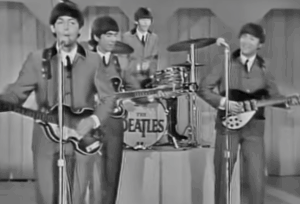3 Rock B-Sides That Ended Up Outshining the A-Side

via Alexey Roshchupkin / YouTube
Some of the greatest songs in rock history didn’t start as headliners. They were tucked away on the flipside of vinyl records—B-sides that were never meant to shine. Yet, as time passed, they outgrew their status as afterthoughts and became unforgettable pieces of music history.
That’s the beauty of rock during the 1970s: the decade was overflowing with talent, and even the so-called “secondary” tracks often held lightning in a bottle. These songs had grit, melody, and soul powerful enough to outlive their more polished counterparts. They may have been buried at first, but listeners eventually found the magic hidden beneath the surface.
In the same spirit, some rock supergroups from the ’70s experienced a similar fate—overshadowed by the bigger acts of their era, only to fade quietly into memory. Yet their music remains worth revisiting. Here are three forgotten ’70s rock supergroups that deserve a comeback.
“You Can’t Always Get What You Want” – The Rolling Stones (Let It Bleed, 1969)
When The Rolling Stones first released “Honky Tonk Women” in 1969, the track became an immediate hit, showcasing the band’s blues-driven swagger. But hidden on the other side of that single was a song that would soon eclipse it in cultural impact. “You Can’t Always Get What You Want” may have started as a B-side, but it didn’t take long for audiences to realize it was something special—an anthem that transcended its original purpose.
What makes the song so timeless is its emotional scope. From the choir-backed opening to Mick Jagger’s bittersweet delivery, it captures the essence of disappointment and acceptance with an almost spiritual weight. It wasn’t just another Rolling Stones track—it was a universal truth wrapped in melody.
Today, “You Can’t Always Get What You Want” stands as one of the band’s defining songs, frequently used in movies, TV, and even political events. It’s proof that sometimes the deeper, more reflective work ends up resonating longer than the radio-ready hit it came with.
“How Soon Is Now?” – The Smiths (Meat Is Murder, 1985)
Originally released as the B-side to “William, It Was Really Nothing,” The Smiths’ “How Soon Is Now?” began its life as an afterthought. Few could have predicted that the hypnotic guitar tremolo and melancholic lyricism would capture the angst of an entire generation. But as fans discovered the track, it quickly became one of the band’s most recognizable and influential songs.
The song’s distinct sound came from Johnny Marr’s innovative guitar work, creating a moody, swirling texture that was unlike anything else in the 1980s. Combined with Morrissey’s vulnerable, alienated lyrics, “How Soon Is Now?” became a touchstone for outsiders and romantics alike.
By the time it was re-released as a single, the song had achieved cult status, far surpassing its original A-side in popularity. It remains a staple of alternative rock radio and one of The Smiths’ most enduring achievements—a reminder that brilliance sometimes hides on the flip side.
“Good Riddance (Time of Your Life)” – Green Day (Nimrod, 1997)
Before it became the bittersweet anthem of graduations and goodbyes, Green Day’s “Good Riddance (Time of Your Life)” was just a B-side to the German release of “Brain Stew.” It was a quiet departure from the band’s usual punk sound, leaning instead on an acoustic guitar and reflective lyrics. At first, it seemed like an odd fit for a band known for power chords and rebellion.
Yet, the song’s sincerity struck a chord with listeners. When “Good Riddance” was later included on their Nimrod album, it found a second life—and eventually became one of the most emotionally resonant songs of the late ’90s. Its simple message about change and acceptance gave Green Day a new dimension, one that connected deeply with fans worldwide.
Looking back, it’s almost unthinkable that this track was ever considered a B-side. “Good Riddance (Time of Your Life)” became one of Green Day’s signature songs and a modern classic that continues to mark life’s turning points for countless listeners.














